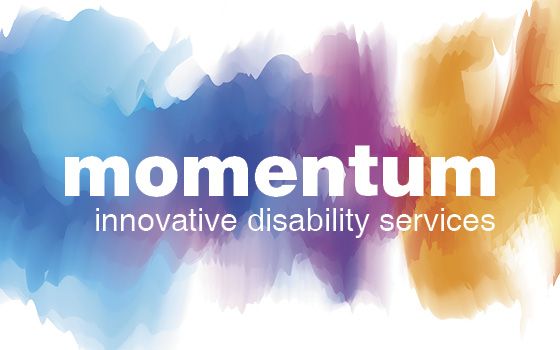
Guest Blog: Independence vs. Interdependence
To help wrap up National Developmental Disabilities Awareness Month, guest blogger and self-advocate Kim Hudson, MSW, shares her thoughts on independence and interdependence – and calls for individuals of all abilities to celebrate interdependence as a part of the human experience.
 When I finished college I went to work for the Westside Center for Independent Living (WCIL) as an advocate. I enjoyed my work supporting people with disabilities who had open cases with the Department of Rehabilitation to meet their educational and/or professional goals.
When I finished college I went to work for the Westside Center for Independent Living (WCIL) as an advocate. I enjoyed my work supporting people with disabilities who had open cases with the Department of Rehabilitation to meet their educational and/or professional goals.
I have always believed that everyone who has a disability has a right to live as active and integrated a life as possible. However, as I have gotten older I have realized that although many people live in their own homes or apartments, no one, regardless of their abilities, lives completely independently. We all need help in one way or another.
People with disabilities just have more defined needs than others due to their physical or cognitive issues. For example, there’s no way that I can mop or vacuum the floor. Changing the sheets would take me hours. I have an assistant that comes to my home 3 days a week to help me with cooking, cleaning, errands and even organizing my home because I literally can’t do those things on my own. This doesn’t mean my life is less independent than others, it means that I recognize my limitations.
To me interdependence means that we all work together to make each other’s lives better. Most of my helpers have been younger than me. Often while we address all the chores I need to accomplish we share stories and ideas of how to make our individual lives better.
Working with an assistant or attendant is a unique relationship because I (and others with disabilities) have to ask my assistant to do some very personal things like helping me get dressed, or helping me clean up messes in the bathroom, or even washing my dirty underwear. This can be embarrassing, but it also leads to a special type of honesty and trust.
Able bodied people may think that they are living independently, but I think they are either fooling themselves or living very lonely lives. An able-bodied person may be able to meet their own personal needs, but I guarantee everyone has psychological or emotional needs that they need help with. Loneliness is a big problem in our society-if we were all up front about what our needs are (like people with disabilities often have to be) perhaps we would all be happier.
My advice – recognize your needs whatever they may be. Find people or things to help you meet those needs, help others meet their needs as well, and celebrate your interdependence!
—
About Kim Hudson, MSW
I have Cerebral Palsy and I use an electric wheelchair to get around. I am a Social Worker with over 20 years of experience working with people with disabilities and chronic health issues.
Read more from Kim and her husband Tom at https://www.loveonwheels.net/.